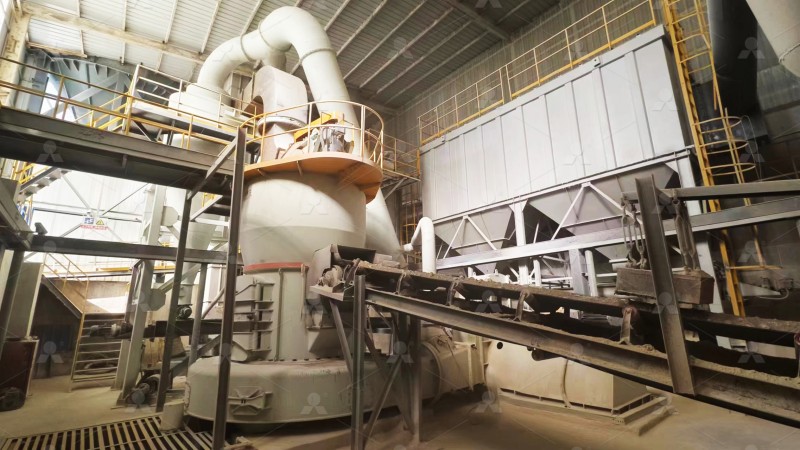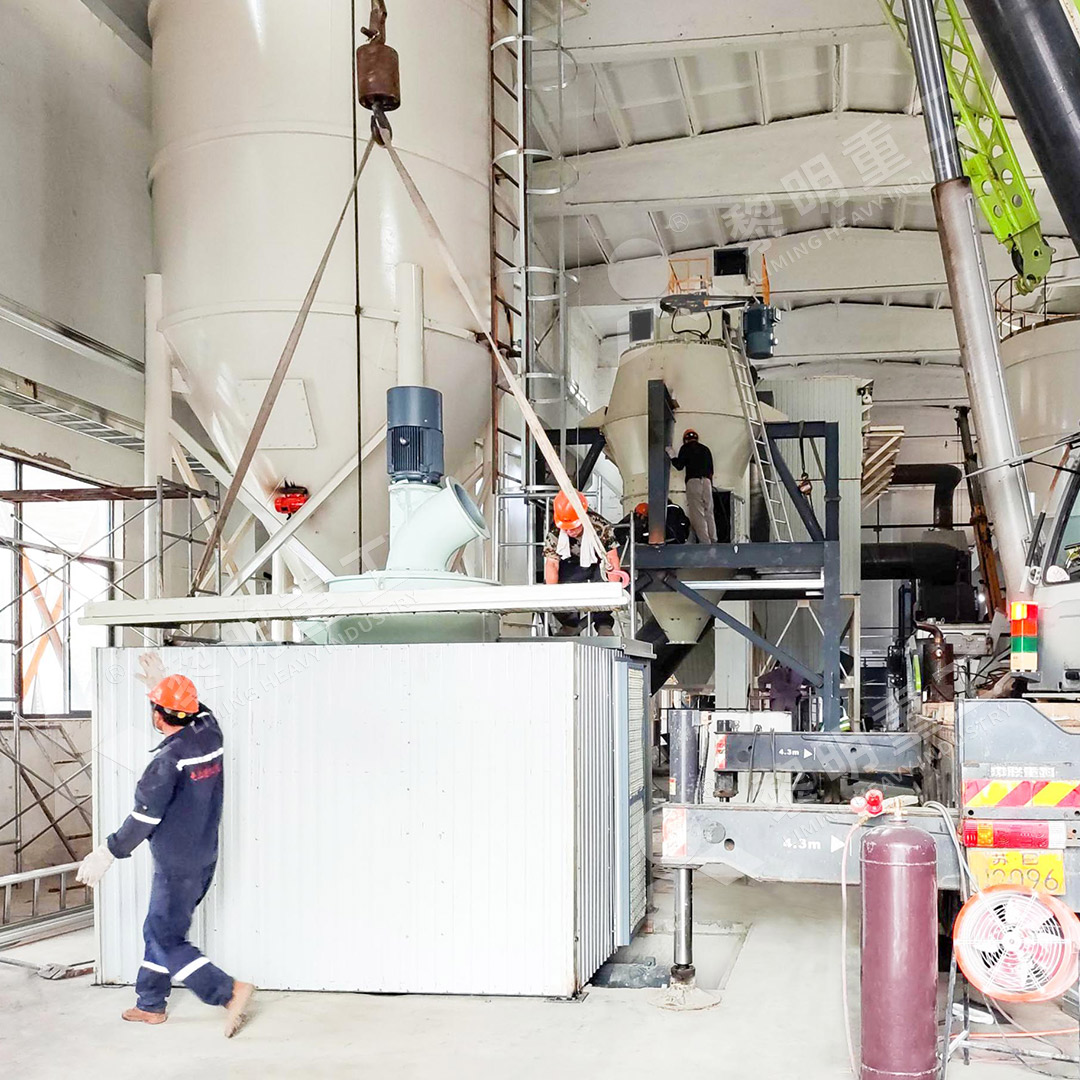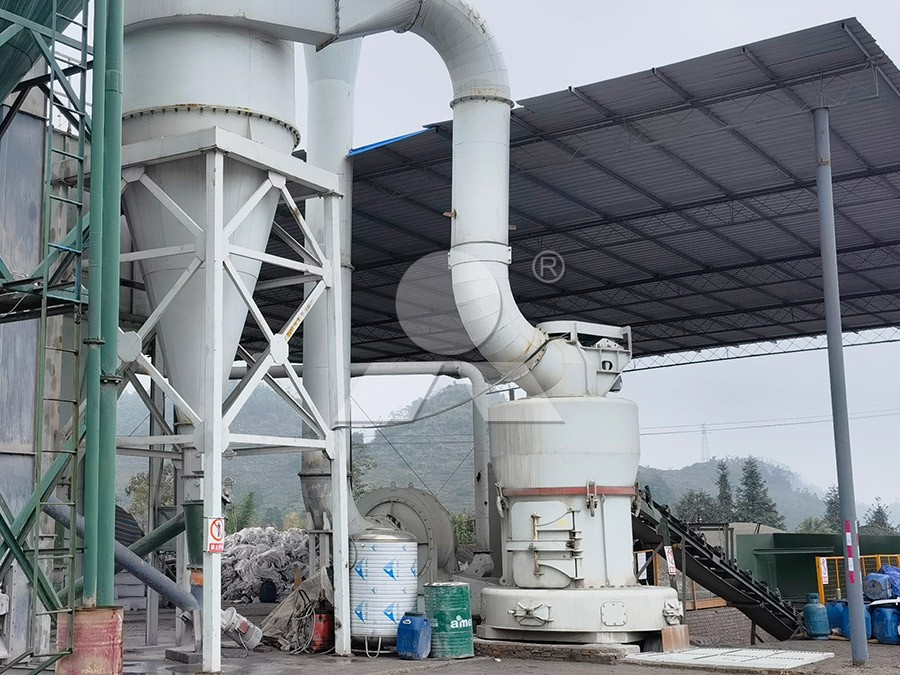Raymond Mill vs Grinding Mill for 4TPH 220 Mesh Hydrated Lime Production in Cement Additives
We provide a wide range of mills — including Raymond mill, trapezoidal mill, vertical mill, ultrafine mill, and ball mill, obtained ISO9001 international quality certification, EU CE certification, and Customs Union CU-TR certification. Suitable for processing minerals such as limestone, phosphate, quicklime, kaolin, talc, barite, bentonite, calcium carbonate, dolomite, coal, gypsum, clay, carbon black, slag, cement raw materials, cement clinker, and more.
The discharge range of these mills can be adjusted to meet specific processing needs, typically from 80-400 mesh, 600-3250 mesh, and can achieve the finest particle size of up to 6000 mesh(D50).
If you are looking for a reliable grinding solution to turn stone or minerals into fine powder, please feel free to contact our online customer service.
Raymond Mill vs Grinding Mill for 4TPH 220 Mesh Hydrated Lime Production in Cement Additives
Selecting the optimal grinding equipment for hydrated lime production in cement additives requires careful consideration of production requirements, energy efficiency, and final product quality. For a 4TPH output at 220 mesh fineness, both traditional Raymond mills and modern grinding mills present viable options with distinct operational characteristics.
Understanding the Application Requirements
Hydrated lime serves as a crucial cement additive, improving workability and durability while reducing permeability. The 220 mesh specification (approximately 75 microns) demands precise particle size control to ensure optimal reactivity and performance in the final cement product. Production consistency at 4 tons per hour requires equipment with reliable throughput and minimal downtime.

Traditional Raymond Mill: Proven Performance with Limitations
The Raymond mill represents established technology with decades of proven performance in mineral processing. With a maximum capacity of 5TPH and ability to handle materials below 25mm, it technically meets the 4TPH requirement. However, operators must consider several factors:
- Energy consumption tends to be higher compared to modern designs
- Maintenance requirements include regular attention to grinding rollers and rings
- Dust control may require additional auxiliary equipment
- Product consistency at exactly 220 mesh may require careful adjustment
While Raymond mills offer lower initial investment, the long-term operational costs and efficiency limitations become significant factors in high-volume production scenarios.
Modern Grinding Solutions: Enhanced Efficiency and Control
Contemporary grinding technologies provide substantial advantages for hydrated lime production. Our MW Ultrafine Grinding Mill presents an optimal solution specifically engineered for such applications. With its 0.5-25TPH capacity range and ability to produce powders between 325-2500 meshes, it exceeds the project requirements while offering operational flexibility.

The MW series incorporates advanced German powder separation technology, ensuring precise control over particle size distribution. For cement additive production, this translates to consistent quality and optimal reactivity. The mill’s unique design eliminates rolling bearings and screws from the grinding chamber, significantly reducing maintenance concerns and potential contamination risks.
Critical Comparison for Cement Additive Production
When evaluating equipment for 4TPH hydrated lime production, several technical aspects demand attention:
| Parameter | Raymond Mill | MW Ultrafine Grinding Mill |
|---|---|---|
| Energy Efficiency | Standard consumption | 30-40% lower than conventional mills |
| Maintenance Frequency | Regular roller and ring replacement | Minimal with external lubrication system |
| Environmental Compliance | May require additional dust collection | Integrated pulse dust collector and silencer |
| Product Consistency | Requires careful adjustment | Precise control through cage-type selector |
The MW Ultrafine Grinding Mill’s higher yield and lower energy consumption directly address the operational cost concerns in continuous cement additive production. The equipment’s ability to operate for 24 hours with external lubrication capability ensures uninterrupted production cycles.
Operational Considerations for Cement Plants
Cement manufacturing environments demand equipment that can maintain performance under challenging conditions. The MW series’ digitalized processing and high-precision manufacturing ensure reliability, while the sufficient spare parts supply guarantees minimal downtime. The integrated dust collection system maintains workplace air quality, crucial for meeting modern industrial hygiene standards.

For operations requiring additional flexibility, our LUM Ultrafine Vertical Grinding Mill offers complementary capabilities with its 5-18TPH capacity and advanced powder separating technology. The reversible structure simplifies maintenance procedures, while the multi-head powder separating technology ensures consistent product quality.
Frequently Asked Questions
Can Raymond Mill reliably achieve 220 mesh fineness for hydrated lime?
While technically possible, maintaining consistent 220 mesh output requires careful operation and frequent adjustments. Modern mills like the MW series provide more stable particle size control through advanced separation technology.
What makes the MW Ultrafine Grinding Mill more suitable for cement additive production?
The MW mill offers higher energy efficiency (40% greater capacity than jet mills), precise fineness control between 325-2500 meshes, and minimal maintenance requirements due to its unique chamber design without rolling bearings or screws.
How does equipment selection impact final cement quality?
Consistent particle size distribution directly affects hydrated lime’s reactivity in cement. The MW mill’s cage-type powder selector ensures uniform fineness, contributing to predictable performance in the final cement product.
What environmental considerations should factor into equipment selection?
Modern grinding mills incorporate integrated dust collection and noise reduction features. The MW series includes efficient pulse dust collectors and mufflers, ensuring compliance with environmental standards without additional equipment.
